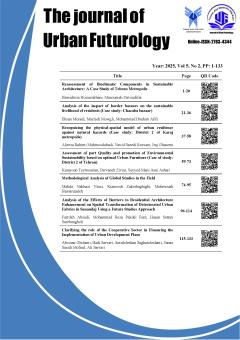-
-
-
Open Access Article
1 - Designing an organizational intelligence model in Bank Mellat branches with a focus on sustainable development
Seyedali Mirasgari Tootian Sedigeh Gholamreza Memarzadeh Tehran Gholamreza Hashemzadeh Khorsgani -
Open Access Article
2 - Driving and Inhibiting Themes of Nation-Building in Path to Sustainable Development
Ahmad Shojaeian Ali Asghar Pourezzat Gholamreza Memarzadeh Tehran
List of Articles Gholamreza Memarzadeh Tehran
-
The rights to this website are owned by the Raimag Press Management System.
Copyright © 2021-2025


